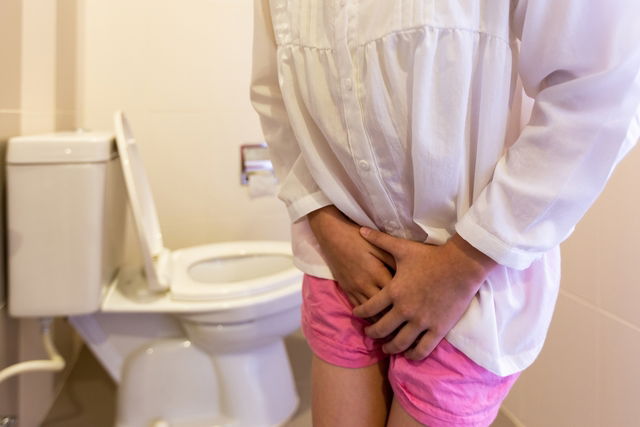The classic symptoms of a UTI include pain or burning when urinating, urinary frequency and very dark urine with a strong odor.
These symptoms can vary from person to person, depending on the area of the urinary tract affected. Symptoms can differ if the infection is located in the urethra, bladder or kidneys, for example.
Generally, a urinary tract infection is caused by intestinal bacteria entering the urinary system. UTIs are usually more common in women, due to the close proximity of the anus to the urethra. Learn about how UTIs in men present differently.
What are the symptoms of a UTI?
The most common symptoms of a UTI include:
- Pain or burning with urination
- Bladder heaviness
- Urinary frequency
- Urinating small amounts at a time
- Very dark and foul-smelling urine
- Constant low-grade fever
- Chills
- Lower back pain, in most severe cases
- Blood in the urine, in some cases
If you notice signs and symptoms of a UTI, you should consult your doctor to confirm the infection and to start the most appropriate treatment.
Online symptom checker
If you think that you may have a UTI, report your symptoms below:
Symptoms by UTI type
A UTI can present differently depending on where the infection is long the urinary system. Common types of UTIs include:
1. Urethritis: infection in the urethra
Urethritis happens when the bacteria causing the UTI only infects the urethra, causing inflammation and symptoms like :
- Frequent urination;
- Difficulty peeing;
- Pain or burning sensation when peeing;
- Yellow discharge in the urethra.
In these cases it is recommended to see your doctor to start treatment with antibiotics to get rid of the bacteria in the urethra. You should also keep the area clean and dry, and aim to increase your daily water intake.
2. Cystitis: bladder infection
Bladder infection is a common form of UTI and it happens when the bacteria manages to pass the urethra and get to the bladder, causing:
- Urgent need to urinate, but in small quantities;
- Burning with urination;
- Presence of blood in the urine;
- Cloudy urine with an intense and unpleasant smell;
- Abdominal pain or feeling of pressure in the low abdomen;
- Fever up to 38ºC (100.4ºF).
You should see your doctor as soon as one or more of these symptoms appear so you can start treatment with antibiotics and stop the infection from getting to your kidneys.
If you have back pain, fever over 38 ºC (100.4ºF) or vomiting, you should proceed to the E.R. immediately.
3. Pyelonephritis: kidney infection
Most UTIs affect only the urethra or the bladder, however, in more serious cases, the bacteria can reach the kidneys and cause a serious infection that leads to:
- Fever over 38.5º C (101.3º F);
- Strong abdominal pain in the abdomen, back or groin;
- Pain or burning when urinating;
- Cloudy urine;
- Presence of pus or blood in the urine;
- Frequent need to pee.
In addition, you may also have chills, nausea, vomiting or fatigue. In older adults, this type of infection usually causes confusion even before other symptoms appear.
If you suspect you might have pyelonephritis, proceed to the hospital immediately for diagnosis and treatment with intravenous antibiotics.
Read more about the treatment of UTIs.

UTI symptoms in babies
Identifying UTI symptoms in babies can be difficult, as babies and children are unable to communicate what they are feeling. In these cases, however, the most common symptoms are:
- Fever over 37.5ºC (99.5º F) with no apparent cause;
- Crying when peeing;
- Urine with an intense smell;
- Presence of blood in the diaper;
- Constant irritability;
- Loss of appetite.
If these symptoms appear, have the baby assessed by a doctor.
UTI symptoms during pregnancy
UTI symptoms in pregnancy are the same as when you are not pregnant. Some pregnant women may discover that they have an infection during a routine urine exam, and not present any symptoms.
UTIs are more common during pregnancy, as the immune system has become weakened, and there is an increase in urine proteins which can lead to increased bacterial growth.
Treatment for UTIs during pregnancy can be completed with cephalexin and nitrofurantoin, which are safe for use.
Confirming a diagnosis
The diagnosis is confirmed through urine tests. Urine cultures can specifically detect the type of bacteria present in the urine to determine which antibiotic is best for use.
Diagnostic imaging tests, such as an ultrasound or MRI, can also be requested, especially in case of pyelonephritis.
What causes UTIs?
A UTI is caused by bacteria that enters the urinary system, the most common being: Escherichia coli (about 70% of cases), Staphylococcus saprophyticus, Proteus and Klebsiella species and Enterococcus faecalis.
How to prevent a UTI
To prevent a UTI you should:
- Wash the external genital area with soap and water after sexual intercourse;
- After urinating and passing stool, always clean the genitals starting at the front and going to the back, to avoid E. Coli bacteria getting to the urethra;
- Empty your bladder every time you pee to avoid residual urine, which increases the probability of getting a UTI;
- Drink more water, aiming for at least 1.5 liters of clear fluids a day;
- Ensure your diet is rich in fiber to decrease the time that stool remains in the intestines, which decreases the time the bacteria stays inside the body;
- Do not apply perfume or cream with any type of chemical to the genital area, since it can irritate the skin and increase the risk of UTIs;
- Avoid wearing clothes that are too tight and avoid wearing daily pantyliners, so you don't sweat excessively in that area.
Follow these recommendations daily, especially during pregnancy as there is a higher risk of getting a UTI due to hormonal changes and the increase of weight on the bladder.
